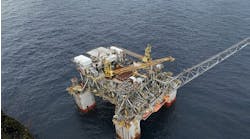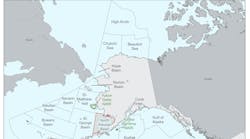Mexico needs to act to stem oil and gas production declines, report claims
Offshore staff
LONDON — Mexico is facing multiple challenges in its energy sector in the run-up to the presidential election, according to Wood Mackenzie.
These include declining oil and gas production, the need for increased exploration, power supply issues and public pressure to switch to renewable energy.
According to Adrian Lara, principal analyst, upstream Latin America for Wood Mackenzie, regardless of the outcome of the election, the new government will have to address terms for attracting more private investment in the country’s energy sector.
“During the last five years,” he explained, “the Mexican government has committed to strengthening state-owned hydrocarbon producer Pemex’s role in the energy sector. But there is a limit to how much Pemex can do with respect to taking the risk and funding the investment required to grow the industry’s infrastructure.”
Wood Mackenzie’s report “Mexico’s energy sector challenges for the incoming administration” predicts that oil and gas demand will rise by 2% during the current decade, while at the same time, the country’s hydrocarbon production looks set to continue to decline.
“Although non-Pemex production through production sharing contracts grows by the end of the current decade, this upside won’t be enough to counter the declining trend,” Lara added. “There is a risk for a steeper decline in production post-2030 without major changes to the current government policy of forbidding new hydrocarbon bidding rounds or awarding exploration blocks.
“Mexico’s energy security requires the availability of affordable energy sources. Integration with the US energy market supplies gas at competitive prices, but we believe a new government should evaluate policies conducive to developing untapped gas reserves.”
According to Wood Mackenzie, about 60% of the country’s prospective resources remain unawarded. Its overall prospective resources are estimated at almost 113 Bboe, of which 67.6 Bboe are in 528 unawarded areas of offshore and onshore basins.
Since 2020, only 36% of the newly discovered resources have been commercially viable on average, Wood Mackenzie claimed. At present, only Pemex and three other operators have a firm budget in place for future exploration activities.
Since the sector was opened to private operators, Lara said most of the IOCs that did drill their awarded blocks did not achieve commercial success.
With a resumption of bidding rounds still uncertain, these companies may decide to leave the country and look for exploration opportunities elsewhere.
However, if bidding rounds were reactivated, a comprehensive review of fiscal terms could ensure that Mexico remained attractive and competitive for hydrocarbon exploration, he suggested.
“We consider that discovering additional resources is necessary even to just maintain Mexico’s oil output at current levels of 1.8 MMbbl/d.”
Oil and gas production from the deepwater Gulf of Mexico will remain a key component of bp's overall energy portfolio, even as it invests in the energy transition, according to Andy Krieger, senior vice president—Gulf of Mexico and Canada, who was speaking at the recent Offshore Technology Conference.
And in March, Pemex committed to a $680 million exploration program in the deepwater Gulf of Mexico in the Perdido foldbelt region.
05.24.2024




